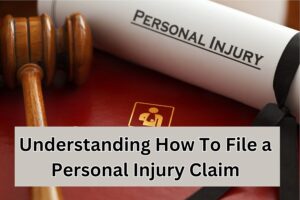6 Tips for Moving On After a Life-Changing Injury

No one ever expects to become the victim of a life-changing injury. The sudden trauma can be devastating both physically and mentally. If you’ve sustained a life-altering injury, take a look at these tips on how best to manage your body and emotions during this troubling time.
Consult with a personal injury firm
If your life-changing injury occurred due to someone else’s negligence or on someone else’s property, it could feel as though you’re powerless to do anything about it. However, that’s not always the case.
Personal injury legal experts like Schwartzapfel Lawyers can work with you to determine what recourse you have following your accident. Whether you pursue legal action or not, speaking to an outside professional can grant you an objective perspective on what happened and how to move forward.
While it may seem clinical and off-putting, consulting with professionals is an effective way to start moving through your grieving process.
Understand the different stages of grief
People mourn for different reasons. In the case of a life-changing injury, victims may mourn for their lifestyle before the accident. If you can understand your grief and how to cope with it, the recovery process will be smoother.
The five stages of grief are denial, anger, bargaining, depression, and acceptance. The first stage happens as victims struggle to overcome the initial shock. The second stage of grief masks the pain you’re feeling behind frustration or outrage that these events could happen to you.
The third stage, bargaining, involves rationalizing how things could have been different to feel like you have control again. For example, you might say to yourself, “If only I’d done X instead of Z, I might have been safe.”
Eventually, the sadness surrounding the events manifests into depression, the fourth stage of grief. The final step, acceptance, is not necessarily happiness, but it does mean that you’re out of the grief pit.
Understanding where you are in these stages will give you a better idea of how you’re reacting and why. With those thoughts in mind, you can start making small steps towards rebounding and moving on from the mental and physical effects of the injury.
Ease back into your old lifestyle
Just because you understand where you are mentally and physically doesn’t mean you can jump right back into how things were. Depending on the injury, you might have to ease yourself back into your old lifestyle or something like it.
For a physical injury, most people will work with physical therapists to return to working condition. You should listen to these medical professionals and take their advice to heart. Over time, therapy can help you restore as much of your pre-injury ability as possible.
Maintain healthy habits as best as you can
During the stages of grief, it’s understandable to fall into some less than healthy habits. These habits could be a coping mechanism or comfort to ease the physical or mental pain of the injury. However, some coping mechanisms might do more harm than good.
Part of moving on from a life-changing injury is understanding how a healthy lifestyle will improve your chances of recovery or adaptation. Eating right, exercising, and frequent social activity will go a long way in improving your body’s chances of recovering well.
These habits can be hard to form if they weren’t already part of your lifestyle. If you’re working with a medical professional, talk to them and see what course of action they recommend.
Try to get some sleep
Sleep is an integral part of your physical and mental well-being. Without it, your body won’t be able to recover damaged tissue or stabilize your brain chemistry. A good night’s sleep can do a lot for an injured body.
A life-changing injury can come with much chronic pain, making it challenging to sleep at night. You might have to find alternative ways to attain the rest you need at night. Pain medications, different sleeping postures, and the removal of electronic devices are all remedies you can try to ease any newfound insomnia.
Don’t hold resentment
One of the worst things you can do for your mental state after a life-changing injury is holding resentment. These negative feelings fester over time and stunt your ability to move through the stages of grief. In other words, resentment is a roadblock on your path to recovery or adaptation.
The easiest way to let go of resentment is to talk it over with a mental health professional. These professionals are trained in techniques to help you work through your feelings and come to terms with everything.
Summary
Moving on after a life-altering injury isn’t easy, but it is possible. So long as you process your emotions and stay in contact with the professionals surrounding your case, you’ll be on the road to recovery before you know it.





